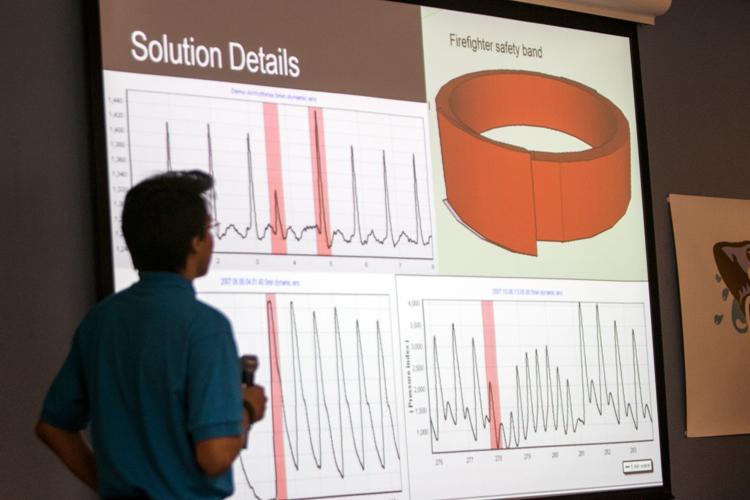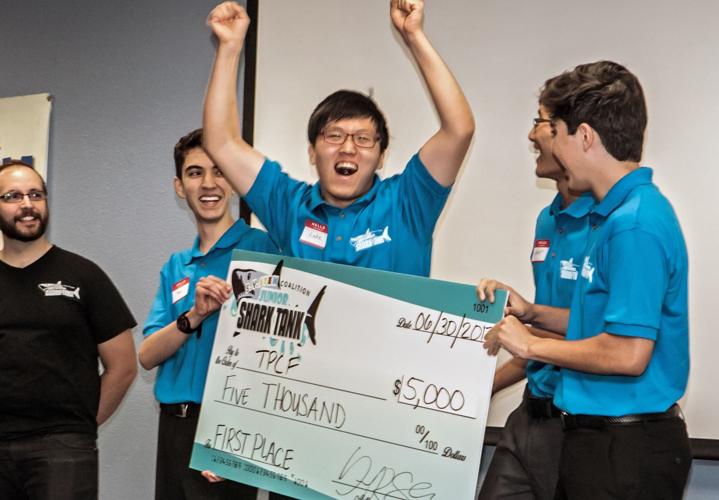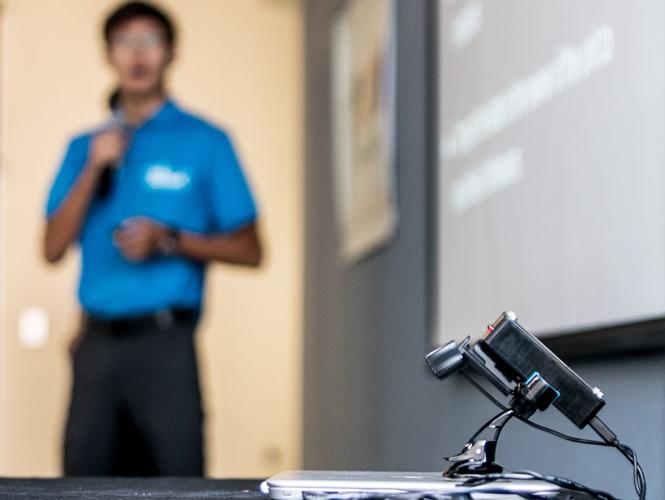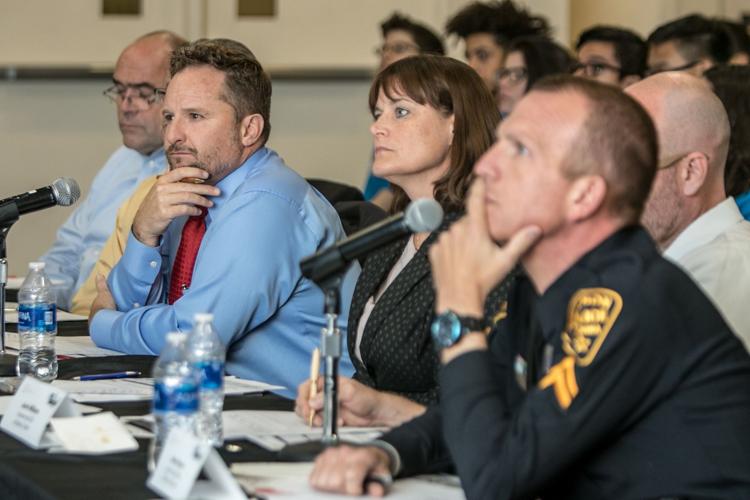Max Adang, Luke Kim, Brent Lee and Manuel Mendoza will be high school juniors in the upcoming school year, which means they’ll be driving soon.
But distracted drivers make the roads dangerous, they say.
That was the inspiration behind a product they pitched to a room of over 100 people Friday evening at the first-ever Junior Shark Tank event held by the S.Y.STEM Coalition, an Arizona based nonprofit that connects K-12 students with the STEM industry.
The Cell Tagger, a dashcam with detection software that notifies truck drivers’ employers when a cellphone is being used while on the road, landed the boys first place in the competition. They were awarded a $5,000 scholarship to split between them.
The Junior Shark Tank program is an intensive four-week course that teaches high school students the basics of engineering and entrepreneurship through hands-on market research, design, building, testing, marketing and selling of their very own product, said Lucas Miller, director of the program.
There were 21 students making up the five teams competing in the program.
Each team had to come up with an idea that would benefit the community, research how they could make it happen, design and build a prototype and present it to a team of sharks, or judges, which consisted of local STEM experts, business leaders and government officials, for the chance to win scholarship money.
What they do with the product going forward is up to them, but Miller hopes they will develop their products and “see where it goes.”
“The fact that these kids only had a month to produce their entire product is absolutely amazing,” said Dustin Williams, Pima County Schools superintendent and one of the judges. “Actual days they had of working days was 18 days to manufacture an entire business plan and put everything together. You can’t even have adults put that together in that amount of time and so to see our young leaders do something extraordinary like this ... that’s what’s so incredible about this program. I hope to see this last and continue for many years because this is what inspires kids to do great things, really. ... It’s incredible.”
Added Mayor Jonathan Rothschild: ”A lot of jobs going in the future are going to be in science, technology, engineering and math, and it’s difficult to get people to that educational level we want them to get to, but one of the best ways to do that is get hands-on work, and that’s what this program does. These are real-world projects. They’re things we need today, whether it’s a waste management issue, firefighter safety, lab work, heat concerns in vehicles, and texting and driving.”
As part of the competition, each team shared the thinking behind their product, their research findings, market analysis, constraints and money issues. Judges then had the opportunity to ask questions about each product.
“I’m pretty sure you all drove here and maybe saw someone driving erratically or were stopped too long at a stoplight,” said Manuel Mendoza on stage with his team. “Maybe they were on their cellphone. ... We can all agree this is dangerous and must be stopped. Distracted driving is a big problem with 25 percent of accidents because of it.”
The team decided that if there was one area it could help prevent phone usage while driving, it would be in the transportation truck industry.
The difference between the team’s product and dashcams currently on the market is it would help prevent an accident before it happened rather than just provide proof of who’s at fault after the fact, the team told the judges.
Second place was awarded to Team C.S.E. Lab Sterilizers, made up of Sophia Garcia, Cai Marsh and Flor Montreal.
The trio, who will split the $2,500 scholarship award, pitched their product by asking the audience to close their eyes and imagine they’re in a Third World country waiting for surgery. The audience was told that due to equipment that wasn’t sterile, they would die.
Their product, a high-pressure sterilizer, is less expensive and more time efficient than ones currently on the market, the team said.
Another $2,500 scholarship award was presented to a team of four that designed a band to monitor firefighters’ heart rates in an effort to reduce cardiac arrest during calls. The team — made up of Isabella Fox, Noe Carrasco, Alexa Flores and Adriel Mendoza — was honored for perseverance.
“We stuck through the problems we came across, and we survived,” 15-year-old Fox said. “Engineering is something I really want to do in my career. After doing this, I want to do it even more.”







